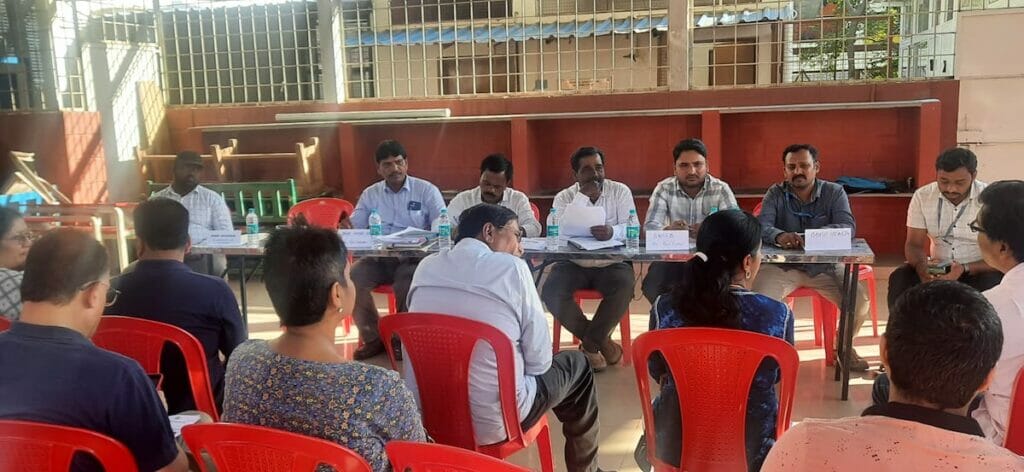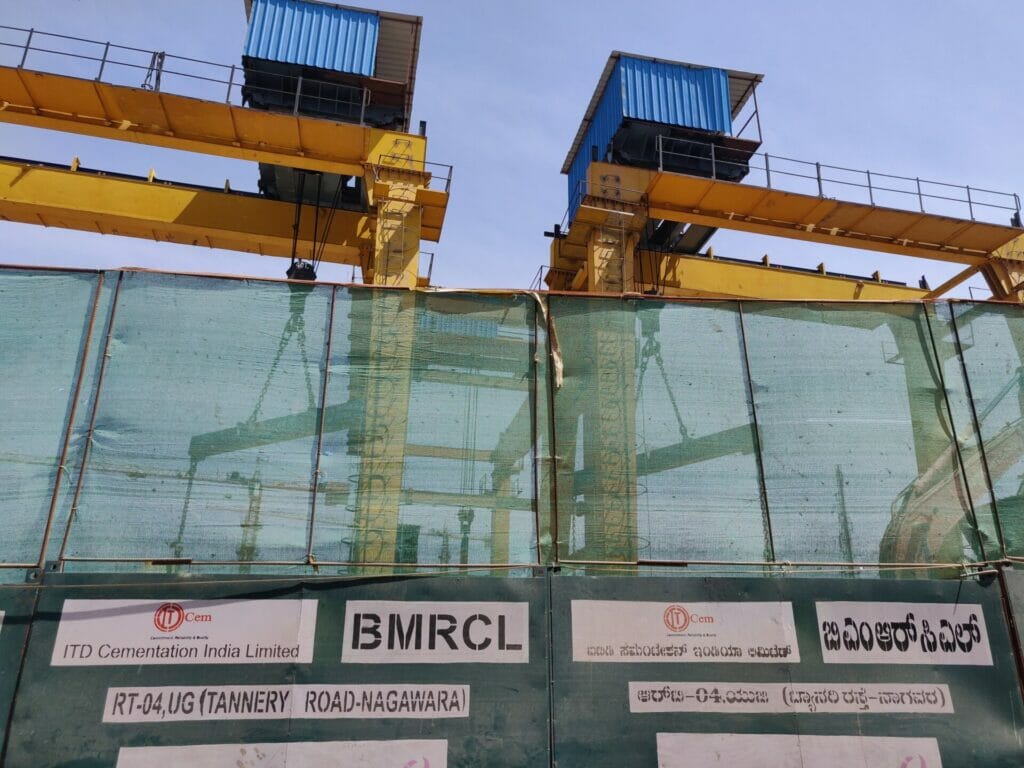KC Smitha, Assistant Professor at the Centre for Research in Social Sciences and Education at Jain (Deemed) University in Bengaluru, in her latest paper, “The Politics of Entrepreneurial Embedded ‘VIP Urbanism’ in Bengaluru: Elite Practices and Agency Problem“, examines the impact of non-political influences on municipal governance, giving rise to ‘entrepreneurial urbanism’.
In part one of Citizen Matters’ interview with Professor Smitha, she discusses how Bengaluru’s municipal government and local democracy have steadily declined, while elite private entities have grown in power.
Excerpts from the interview:
CM: Please tell us a what your paper is about. What does the term ‘VIP urbanism’ mean?
KC Smitha: This term came about in a conference I attended. We wanted to understand the urbanisation process in the Global South, including in India. I tried to conceptualise how, apart from the municipal government, there are parallel alliances and organisations attempting to implement policies that are focused on the needs of the elite. When we talk about policy, we immediately think of the government, whether the national, state or the municipal government. But how do non-state actors, like civil society, the private sector, real estate, and residential welfare associations influence our city? Numerous non-state actors are playing an important role in influencing policy decisions and outcomes.
I then contextualised this for Bengaluru. Within the city, many bodies decide our policies. We have BBMP departments, such as solid waste management, horticulture. We also have what are known as parastatal bodies, for example, BWSSB or the BDA. So, there are numerous extra constitutional bodies, which are working in collaboration with the local government, to provide services and actually influence policy decisions.
I try to look into the processes these parastatal organisations are impacting and how there is a kind of re-configuration of these urban governance bodies. We need a clear demarcation between an elected body, like the municipal corporation, and the numerous non-elected parastatal bodies and private sector actors who are influencing policy decisions.
KC Smitha is a political scientist. She focuses on themes of urban governance, public policy, and service delivery, among others. She studies the structure of the Indian Metropolis, rural-urban migration, deprivation, poverty (rehabilitation and resettlement), and governance from an interdisciplinary perspective.
She has published several book chapters and articles in peer reviewed journals. She has edited two books: Entrepreneurial Urbanism in India: Politics of Spatial Restructuring and Local Contestation, Singapore: Springer (2017) and Urban Environmental Governance in India: Insights from Bengaluru, US: Springer.
CM: You mention in the paper that the involvement of these parastatal bodies or the private sector has diluted local government in Bengaluru. Could you elaborate?
KC Smitha: We are supposed to have elected representatives, councillors and ward members in this city. They should actually have the power to implement local projects, such as roads, streetlights, sanitation, and transportation. But how far are they able to impact local municipal policy decisions? The municipal elections haven’t happened since 2020. That’s the first point.
Secondly, even where there are ward committees and members, they are not able to address the grievances of the public. And there is a kind of inertia in terms of what actually happens locally. For example, just before the last election, in Basaveshwarnagar, they started digging up the existing drains and redoing the entire drainage. Was this needed? This is a kind of non-accountability as far as the municipal representatives and the citizens are concerned.
Although ward members are present, we find that major policy decisions are not presented before the elected representatives or citizens before implementation. So, there is no debate or discussion.
No effort is made to seek the opinions of local representatives or citizens for major decisions, such as acquiring land for the metro, flyovers or any kind of road expansion. Basically, there isn’t any discussion happening. There isn’t any opportunity given to the local representatives to express their viewpoints on major policy decisions or infrastructure projects.
At the ward level, there isn’t enough public participation in the ward committees. They are not really functioning as the public interface between the citizens and the municipal representatives.
So, these are the three main ways that a kind of destabilisation occurs. There is a kind of overriding of the powers of elected representatives.

Read more: Ward committee meetings lack proper rules, representation and legal framework
CM: How has India’s path towards liberalisation and globalisation led to the rise of parastatal bodies or increasing private influence and declining public participation?
KC Smitha: Parastatal bodies, like the BDA and BWSSB, have existed in Bengaluru since the 1970-1980s. They are essentially pre-globalisation and liberalisation. But with globalisation and liberalisation in the 1990s, we saw a rise in the private sector and globalised aspirations of some sections of society and in policies. Some of these led to national level policies that pushed for increased urbanisation and the creation of more metro cities with similar infrastructure as developed countries, such as a metro or large flyovers.
At the same time, there was also a rise of private sector involvement in public urban projects, through PPS (Public-Private Partnerships) and special purpose vehicles like BMRCL (Bengaluru Metro Rail Corporation Ltd) or BSWML (Bengaluru Solid Waste Management Ltd). The reason for this is that municipalities like BBMP lack the resources, whether it is finances or personnel, to fulfil these aspirations. They also lack efficiency. So, it was inevitable that they collaborate with the private sector to make alliances to implement projects. Whether it is installing street lights or solid waste management or water supply, they rely on the private sector.
For example, BWSSB is relying on huge loans from the Japan International Cooperation Agency for its water supply project for the 110 villages within BBMP limits. The metro project is also funded by the private sector. Many infrastructure projects are funded by international organisations like the World Bank. Numerous international financial institutions fund large scale projects and, therefore, also influence policy decisions in such metropolitan cities.

CM: What is the problem with this?
KC Smitha: This influence affects service delivery and the spatial structure and form of the city. Infrastructure projects are prioritised, but basic amenities like water supply, solid waste management, sewerage, floods, environmental protection and so many immediate day to day services, which should be taken care of and prioritised, are not looked into. We see this in Bengaluru. Large scale infrastructure projects have boomed in the city, particularly in the name of facilitating different corridors of the city, and reducing commute time. So, the priority of city authorities has shifted from basic services to the needs of the elites.
Read more: State budget prioritises infrastructure in Bengaluru, but governance issues remain unresolved
CM: I understand your point about the lack of finances and inefficiency forcing municipal governments to turn to the private sector. But a lot of people will argue that this is good. There is the belief that the private sector is more efficient. They will do a better job, so why not collaborate with them? Why not take funding from an international bank or involve a private company in the delivery of services? What is the flipside of increasing private influence in city level governance or service delivery?
KC Smitha: Relying on the private sector is fine as long as we are able to pay for the services. You and I, we can afford the metro, we can afford to pay for the water, even afford cabs. But what about those who cannot afford it? What about our rights to enjoy basic good quality services at a minimum affordable price?
Also, when we say that projects have been funded by World Bank or ADB or other international organisations, these funds are not for free. They are a debt trap; our local departments need to pay them back, with interest. And local departments are already bankrupt. They aren’t even able to gather the amount to take care of their own organisations. We heard from many officials about how local organisations are increasingly dependent on outside finances, but they are not able to tap their own resources.
For example, BBMP is the sole authority to tap property taxes in the city. We know that there are approximately 1.8 million properties in Bengaluru, but BBMP is not able to meet its own targets for property tax. It is not able to tap these finances, unlike Mumbai and New Delhi. This is how local departments, which are unable to generate their own revenue, fall into a debt trap.
The government should equip themselves to tap their own sources of revenue. But they are not concentrating on this. Instead, they are focusing on other kinds of alliances and partnerships with the private sector and to do that they have to get into municipal bonds by pledging BBMP properties for loans; this money is spent on repaying the banks rather than delivering basic services. But there is no plan to strengthen the governance machinery despite several discussions, academic recommendations and reports.
This is impacting the city’s basic services, such as water supply to peripheral areas and solid waste management, because local agencies cannot really afford to deliver them.